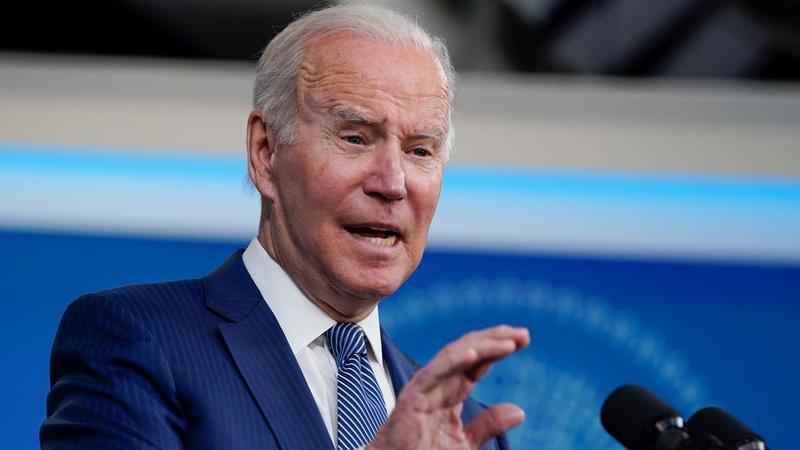Biden to withdraw embattled banking regulator nominee

President Joe Biden speaks in the South Court Auditorium on the White House campus, Wednesday, Dec. 1, 2021, in Washington. Biden is set to kick of more urgent campaign for Americans to get COVID-19 booster shots on Dec. 2, as he unveils a his winter plans to combat the coronavirus.[AP Photo/Evan Vucci]
President Joe Biden said Tuesday that Saule Omarova’s nomination to lead the Office of the Comptroller of the Currency would be withdrawn, as her candidacy faced steep resistance in the Senate with Republican lawmakers criticizing her vision for banking regulation and her birthplace in the former Soviet Union.
The president said in a statement that he accepted a withdrawal request from Omarova, a law professor at Cornell University who was born in Kazakhstan when it was part of the Soviet Union and immigrated to the U.S. in 1991. In Senate committee hearings last month, she addressed questions about greater government oversight of the financial sector. That led Republican Sen. Pat Toomey of Pennsylvania to say her ideas were a “socialist manifesto,” while Republican Sen. John Kennedy of Louisiana said, “I don’t know whether to call you professor or comrade.”
Biden defended his nominee in the statement announcing her withdrawn nomination.
“As a strong advocate for consumers and a staunch defender of the safety and soundness of our financial system, Saule would have brought invaluable insight and perspective to our important work on behalf of the American people,” the president said. “But unfortunately, from the very beginning of her nomination, Saule was subjected to inappropriate personal attacks that were far beyond the pale.”
Yet the withdrawn nomination was a sign that Omarova also lacked some of the needed Democratic support to clear the Banking Committee and faced a Senate-wide vote. During her confirmation hearing, Sen. Jon Tester of Montana said he had “significant concerns” about Omarova’s nomination, including some of her opposition to a bipartisan law that eased some of the restrictions placed on banks after the 2008 financial crisis.
Last year, Omarova published a paper arguing for an overhaul of the nation’s banking system that would expand the Federal Reserve’s role by allowing the central bank to hold consumer deposits. This could supplant one of the roles of private banks, a major criticism by her detractors. Supporters of the idea say the Fed could extend credit more quickly when needed to individual accounts during times of economic downturns.